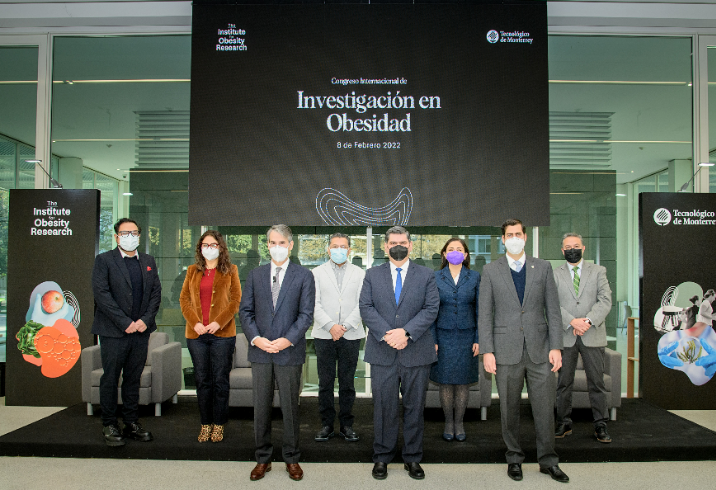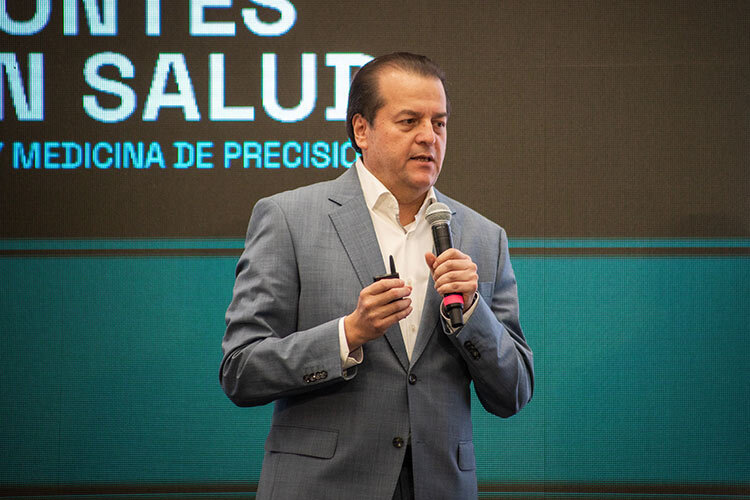The Institute aims to generate scientific knowledge and develop therapies, devices, and healthy food to counteract the Mexican statistics.
Tecnológico de Monterrey has presented The Institute for Obesity Research, a center for tackling the obesity pandemic that, according to the World Health Organization (WHO), kills 2.8 million people around the world every year.
“Obesity is a multifactorial problem. This problem causes one of the biggest health complications, not just in Mexico but in all developed countries. We can’t attempt to see it from a single perspective,” said Guillermo Torre Amione, Vice President of Research at the Tec and Rector of TecSalud.
Obesity has genetic, biological, environmental, cultural, and economic components.
That’s why The Institute for Obesity Research aims to generate scientific knowledge; develop therapies, devices, and healthy food; set up companies based on science and technology that promote metabolic health; and support decision-making for healthier societies.
The center was presented during the International Conference on Obesity Research, which was attended in person and remotely by different specialists.
How will The Institute for Obesity Research tackle the obesity pandemic?
The Institute for Obesity Research will be composed of five research units:
One of these, Experimental Medicine and Advanced Therapies, will be run by Gerardo García-Rivas, who holds a Ph.D. in Molecular Biology. Another will be Bioengineering and Medical Devices, under biochemistry and chemical engineering expert Marco Rito.
There will also be the Healthy Food unit, run by Janet Gutiérrez, a biotechnology expert and winner of the 2020 Research Award; the Integrative Biology unit, under Rocío Díaz, who holds a Ph.D. in Plant Molecular and Cellular Biology; and the Public Enterprise and Policy unit, under Gustavo Merino, who holds a master’s and a Ph.D. in Public Policy from Harvard University.
The center will be assisted in its efforts by three of the Tec’s schools: Medicine and Health Sciences, Engineering and Sciences, and the School of Government, as well as many of the institution’s laboratories.
“We believe we have the ability and the responsibility to carry out high-impact research that translates into benefits for society,” said David Garza, Rector and Executive President of Tec de Monterrey.
He also said that the opening of this Institute means taking a significant step towards meeting the goals outlined in the Strategic Plan for 2025, in which research plays a fundamental role for achieving results that transform people’s lives.
The Institute for Obesity Research will begin operations in Monterrey, Nuevo León, with the aim of expanding to other states in the coming years.
The obesity pandemic in Mexico
By 2030, 40% of Mexican adults will be suffering from some form of obesity, estimates the Organisation for Economic Co-operation and Development (OECD). The Institute for Obesity Research wants to make an impact on those statistics.
According to the WHO, excess body fat reduces people’s life expectancy by five to twenty years. It is also one of the main risk factors for nine types of cancer: breast, uterus, colon, kidney, gallbladder, pancreas, rectum, esophagus, and ovary.
In fact, in the midst of the SARS-CoV-2 health crisis, this comorbidity holds the greatest risk in the event of severe illness caused by COVID-19.


















